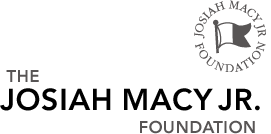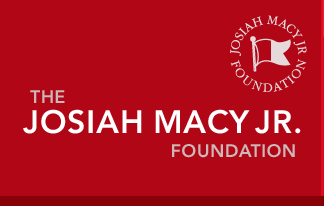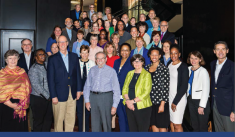Our Grantees
Across the Foundation’s priority areas, our grantees are working to improve the health of the public through innovative research and programs. The Foundation awards up to 40 grants on a rotating schedule each year.
Strategic Management Simulation
Even though physicians rely on their critical judgment to make the decisions essential to effective clinical care, decision-making is not a component of medical training, nor is any effort made to address its importance or assess the decision-making skills of trainees.
This study, proposed by a group of investigators with experience in the field of cognitive processing, aims to correct this deficiency. Led by Dr. Usha Satish, who holds a PhD in cognitive psychology, investigators are developing training modules for use in graduate medical education, adapting the interactive computerized programs that have proved effective in other fields for medicine.
For more than a decade, Dr. Satish, has been involved with similar projects for the military and aviation, and for corporations committed to more effective decision-making. She has helped to develop the interactive computerized programs that simulate appropriate real-life situations for these fields. These programs are designed to identify individual patterns of decision-making before, during and after a crisis or emergency.
Her work has demonstrated that individuals vary considerably both in their responses and their management styles, but it has also demonstrated that these responses can be modified and changed through the use of computerized self-assessment programs.
Dr. Satish, who is an associate professor in psychiatry at SUNY-Upstate and visiting associate professor of surgery at Stanford, is working with Thomas Krummel, MD, professor of surgery at Stanford, to adapt the approaches that have been successful in other areas to medicine, specifically to the fields of surgery, medicine, psychiatry and preventive medicine.
For this project, they are developing test simulations to measure an individual’s ability to use initiative, to multi-task, to plan and strategize, and then to measure how an individual uses those variables in simulated crisis situations and in subsequent “recovery.” Already pilot studies reveal a striking range of performance, with high performing individuals demonstrating the ability to apply multiple strategies, initiate and make multiple decisions, while low performing individuals lack those qualities. Some individuals who perform well under normal conditions are shown to break down under stress. Five institutions—SUNY-Upstate, Stanford, Henry Ford Medical Center, Dartmouth and Penn State — are participating in the project. Dr. David Leach of the Accreditation Council for Graduate Medical Education (ACGME) serves as an advisor to the project, which, if successfully validated, could be used by between 50,000 and 100,000 residents shortly after completion, and would have a huge and almost immediate impact on graduate medical education. The same approach could then be applied to other areas of medical education.
During the first year, the team is relying upon focus groups to help adapt general simulations to medicine as it develops the necessary database and software. During the second year, the simulation modules will be tested and evaluated by some 1,800 residents. When the project is successfully completed, ACGME plans to make the self-assessment modules available to residency training programs at little or no cost.




 11.13.18
11.13.18